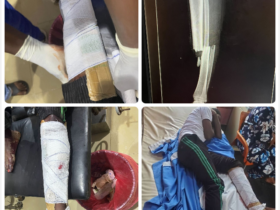
In the second quarter of 2023, Nigeria witnessed a slight uptick in its unemployment rate, reaching 4.2%, according to a report released by the National Bureau of Statistics (NBS) on Thursday.
While the increase from the previous quarter’s 4.1% appears modest, a closer examination exposes disproportionate impacts on women and young people.
The overall workforce participation remains high at 80.4%, but the burden of unemployment is notably higher for women, registering a rate of 5.9%, compared to men at 3.5%. Urban areas faced a more significant jobless rate of 5.9%, in contrast to rural areas with a rate of 2.5%. The youth, aged 15-24, experienced an unemployment rate of 7.2%.
The nature of employment in Nigeria reflects a prevalence of self-employment, with 88% of employed Nigerians working for themselves. In this category, women take the lead, constituting 91.0% of self-employed workers, while men account for 85.2%. Meanwhile, a substantial 92.7% of employed individuals work in the informal sector.
READ MORE: Edo 2024: Straight Battle Between Kingsley Ulinfun And Olumide Akpata In Labour Party
The report highlights that women continue to dominate informal employment, with a higher rate than men across all age groups.
The report equally stated, “Like the previous two quarters, the rate of women in informal employment is higher than that of men. Although the informality rate is high across all age groups, younger persons (15-24), and persons above 65 years were more informally employed.
“The rate of informal employment among people living in rural areas is 97.3 percent while the urban informality rate is estimated at 88 percent.
“Educational qualification seems to be negatively associated with informality as findings show that persons with higher qualifications are less likely to be in informal employment. 99.6 percent of people with no formal education were found to be in informal employment,” the report added.








Leave a Reply